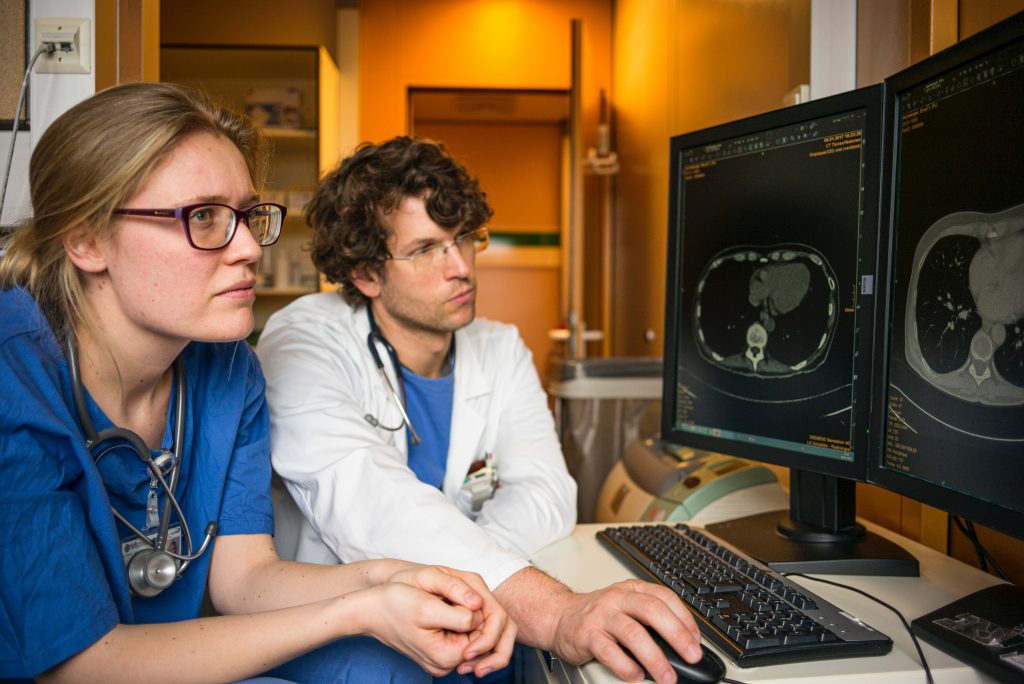
THE GLOBAL DIGITAL HEALTH MARKET IS $111 BILLION, AND GROWING
Clinical UX is an emerging field
Join a growing and well funded global industry and earn an average starting salary that is $10,000 more than other UX Professionals.
Providing the world’s first and only online Clinical UX course
Study part time from anywhere in the world.
Self paced learning and live classroom sessions.
No prior experience required.
Scholarships available.
Enrollment is now CLOSED
Our Clinical UX course trains clinicians, designers and other professionals to work effectively on a variety of healthcare projects, equipping them with core competencies in Clinical UX. Through a combination of self paced online study, weekly classroom teaching and regular one to ones, students will learn how to improve the experiences clinicians and patients have with healthcare technology and services.
Working as a Clinical UX Designer makes a difference in healthcare, and can change your life for the better.
Learn how to make healthcare technology and services that improve health outcomes
Be a part of an ever increasing number of people working in Digital Health and Healthcare Service Design
Join a workforce that earns above the average UX salary for all industries in virtually all countries


“Enrolling as a student in the Clinical UX Academy has been one of the best decisions I’ve made across both my academic and professional careers. As well as core principles in UX and Interaction Design, the course has equipped me with domain-specific knowledge in applying UX skills to healthcare and the clinical environment.
Combined with a background in psychology, I can confidently state that the course has directly helped me to begin a career as a Clinical UX Researcher. Dr Morrison is also an exceptional teacher and an even better individual; he has demonstrated a genuine care for each of his students throughout the duration of the course offering regular feedback and career mentoring.
I’d strongly recommend this course for clinicians or academics wanting to work in digital health design, or UX professionals wanting to specialise in healthcare.“
Jack Burton
Clinical UX Researcher at Graphite Digital
Our Clinical UX Course supports all kinds of professionals interested in developing their skills or successfully carving out a new career in the fast-growing digital health, health tech and general health industries. It will provide you with skills and knowledge in the 5 Clinical UX Core Competencies and help you create a portfolio of work to demonstrate the abilities developed whilst taking the course.
Each type of professional however will have unique learning and development needs.
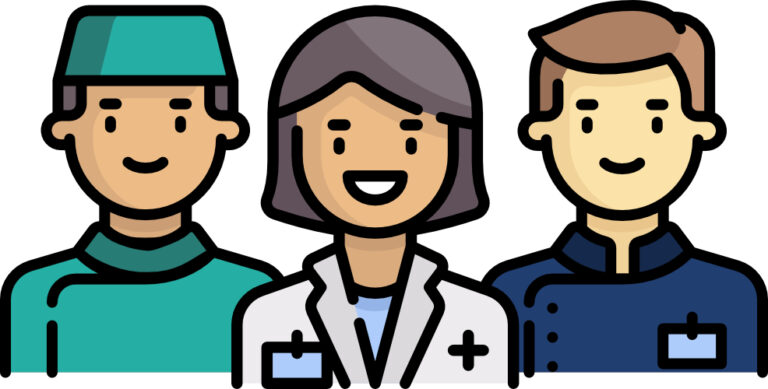
Learn how to apply your existing problem solving skills and knowledge of healthcare to designing healthcare technology and services.
Develop skills in visuals design, iterative design, web & app design and service design and working in business.
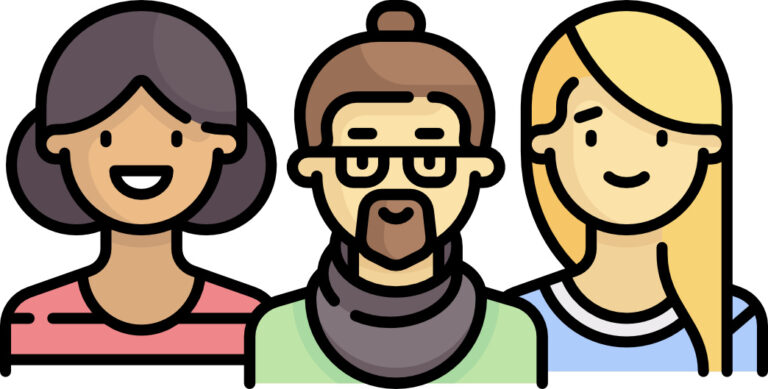
Learn how to apply your existing skills in, research methods, visual communication, iterative design, and industry knowledge to healthcare projects
Develop knowledge of the healthcare industry, both global and local healthcare ecosystems and how new technology and services can improve health outcomes.
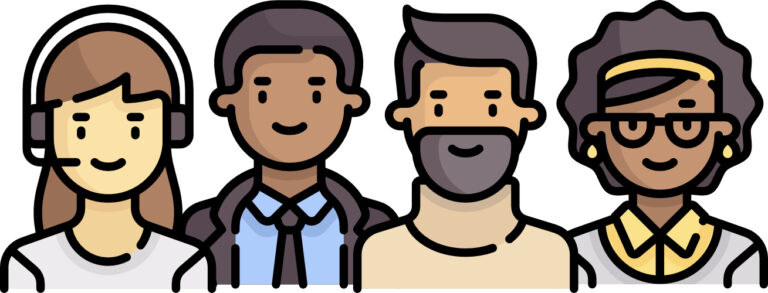
Learn how to apply your existing skills, knowledge and deep interest in healthcare to make healthcare solutions that are more useful and accessible
Develop knowledge and skills in problem solving for healthcare, research methods, visual and data communication, service design and more.

Companies who enrol their staff on the Clinical UX Course get so many benefits too!
Study and work at the same time
Full-time employees can study part-time with no time off required
Learn on the job
Students can use their day job projects as course work
Professional mentorship and supervision included
Course instructors can advise and supervise the day job work of students

Clinical UX is an emerging field
Join a growing and well funded global industry and earn an average starting salary that is $10,000 more than other UX Professionals.
Then you should join the course part way through and start in June 2023.
All students receive a certificate for completing the course, detailing what the student has learned.

“The past year has been an incredible journey thanks to Dr Gyles Morrison and the Clinical UX course!
As someone who has been designing digital products for over a decade and a healthcare geek, I was still surprised by how much “unknown unknowns” I had up until now.
Thank you Gyles for challenging us on a weekly basis, connecting and supporting our growth within the emerging world of #ClinicalUX. Looking forward to implement all your valuable lessons in the future, and create a much better world for patients, clinicians and the systems around them. 🙏🏻”
Lara Korik
Senior Interaction Designer at Designit
The course develops 5 core competencies, split across 3 units and 14 modules.
Find out more below.
Applying the theories of how people think and behave, and how research methods can provide insights on making useful healthcare technology and services.
Knowledge and skills include conducting effective research, behaviour change theory and emotional design.
Knowledge of how to use creative skill to communicate ideas, problem solve, and create diverse products and services. This does not need to include visual design however.
Knowledge and skills include visual communication, problem shaping/defining, prototyping, and visual design. Note that you do not need to be an artist!
Understanding of how healthcare is delivered on a global and local level, and what the biggest health problems are that need solving by Clinical UX Designers. Full knowledge of a clinician is not required.
Knowledge and skills include how healthcare systems are run, different types of clinical and non clinical responsibilities, and how healthcare is paid for.
The use of physical and digital solutions which make tasks simpler and life easier. These solutions can be connected to the internet, utilise radio waves or are purely offline.
Knowledge and skills include web and mobile application, physical devices, AR/VR and AI/machine learning.
Methods and mindsets required to thrive as an individual in any team, engage with colleagues and stakeholders effectively and raise the UX maturity of those around you.
Knowledge and skills include managing conflict, effective communication, leadership, continued development, and discipline at work.

“Despite a varied and interesting career as a paramedic I had become institutionalised. I was afraid to step away from what I had known for twenty years. Gyles opened my eyes to see how my knowledge and experience needn’t be lost by moving away from traditional patient care roles and how I could still be of benefit.
The course was given at a nice steady pace, I never felt overwhelmed, and my fellow students were also great to work with. For me, working virtually and internationally was new, and so exciting!”
Damian Sherman
Clinical UX Researcher and Digital Paramedicine Consultant

“Despite a completing a UX bootcamp, and being a doctor, I have learned so much from the Clinical UX.
Dr. Morrison has vast experience in the clinical UX field and is passionate about mentoring and developing emerging UX talent. He has a treasure trove of resources, expertise and patience and his input is a must if you want to take your career to the next level.”“
Dr Hillary Hines
Clinical UX Designer
The course is broken down in to 3 units; Fundamentals, Applied and Advanced Clinical UX.
Experienced designers and UX professionals can join from unit 2.
Each unit should take approximately 4 months to complete, meaning all 3 units can be completed within a year.
Depending on prior experience and speed of learning, students can start applying for jobs after just 4 months of study.
This module provides the foundational knowledge on Clinical UX, ideal for those who are new to UX. The purpose of the unit is to ensure students understand the core terminologies and develop the core skills of a UX professional, within the context of working in healthcare.
The unit contains 5 modules described below.
This module builds on a foundation of UX knowledge and teaches students how to apply UX skills and knowledge to healthcare. The purpose of the unit is to ensure students understand the additional information of healthcare as an ecosystem and the many people and processes that it contains.
It comprises 5 modules shown below:
This module deals with the most advanced and complicated areas of CUX with the study of prior units, or experience in healthcare UX being required. Students learn more about designing for ambiguity and innovation, particularly useful for ambitious projects that are using complex technology and processes to solve complex problems.
The unit contains 4 modules:
Successfully complete the course part-time course through mixed learning. This involves a combination learning on your own, with others and through different learning styles. This ultimately involves structured online self-study, online classroom teaching, using an online student community and having one to one mentoring.
Work through a series of accessible, structured teaching provided through video and text that you can complete at your own pace in two week chunks. You will be given assessments that will be automatically graded, and assignments that are to be reviewed by the course instructors and teaching assistants.
You will also be given further resources to support you achieving your Personal Learning Objectives.
Students have live sessions at least once a week to engage with fellow students in workshops and whilst completing or reviewing assignments. Online classroom teaching also allows students to learn from each other directly, or when their questions are answered. It also provides opportunistic learning from instructors and teach assistants.
Additionally, students get to learn from guest lectures who can cover a variety of topics relating to healthcare, business administration, entrepreneurship and both personal and professional development.
All students will have their own online profile so they can connect and instantly message other students. They can join groups to have discussions as a wider group and get questions answered for all to learn from.
They will also have access to groups where they can setup Zoom meetings to with each other, and join weekly student study groups.
Students get regular, protected, one to one time with their instructor to go over the Personal Learning Objectives, and gain feedback on their assignments. For students with a job involving UX, they can get supervision over their day job work as well.
Additionally, these supervisory meetings also help students to develop their personal brand and prepare them for their first Clinical UX job.
Work through a series of accessible, structured teaching provided through video and text that you can complete at your own pace in two week chunks. You will be given assessments that will be automatically graded, and assignments that are to be reviewed by the course instructors and teaching assistants.
You will also be given further resources to support you achieving your Personal Learning Objectives.
Students have live sessions at least once a week to engage with fellow students in workshops and whilst completing or reviewing assignments. Online classroom teaching also allows students to learn from each other directly, or when their questions are answered. It also provides opportunistic learning from instructors and teach assistants.
Additionally, students get to learn from guest lectures who can cover a variety of topics relating to healthcare, business administration, entrepreneurship and both personal and professional development.
All students will have their own online profile so they can connect and instantly message other students. They can join groups to have discussions as a wider group and get questions answered for all to learn from.
They will also have access to groups where they can setup Zoom meetings to with each other, and join weekly student study groups.
Students get regular, protected, one to one time with their instructor to go over the Personal Learning Objectives, and gain feedback on their assignments. For students with a job involving UX, they can get supervision over their day job work as well.
Additionally, these supervisory meetings also help students to develop their personal brand and prepare them for their first Clinical UX job.
Although the course is part time and self directed, students must do the following:
Attend at least 60% live sessions
A computer with internet access, (a MacBook is not essential)
Complete all self direction online training material
Devote 3 hours a week minimum for private study

“I participated in the previous Clinical UX course cohort and have learned so much about the way health systems work, how we can solve problems that address issues on both individual and societal levels, and how important it is to centre the voices and experiences of people when designing interventions.
I highly recommend this course to any healthcare or design professionals that are looking to incorporate healthcare human-centred design into their practices.”
Nikoo Aghaei
Clinical UX Designer
A list of some of the core skills, knowledge and topics you will learn
People-centred design
Exploratory Research
Explanatory Research
Experience Mapping
Information Architecture
Iterative Design
Interaction Design
Sketching and Wire-framing
Low and High fidelity prototyping
UI Design
Evaluative Research
Stakeholder management
Agile vs Waterfall
Storytelling and presentation skills
HCPs and Patients Personas
People Centred Design
Public Health and marketing healthy living
Healthcare branding
UX writing in healthcare
Data visualisation
Medical education and patient information
Health economics
Health insurance vs Public Health
GDPR, Privacy and Security
Medical law & ethics
AI and Machine learning
Computer Vision
AR and VR
Decision support
Digital Therapeutics
Telehealth
Remote monitoring
ePrescribing
Clinical trials
EMR and PHR
Clinical messaging
Clinical Applications
Medical Devices and regulations
Software as Medical Devices
PROMs and PREMs
Clinical Pathways
Care plans
and much more!

Living in a different continent to your instructor doesn’t have to be a barrier.
With the power of the internet and cloud storage, you can join the course from any time zone.
Classes are given live, and recorded for students to watch later.
For those who want to go in to User Interface (UI) design. Learn to communicate and test user interface designs with the latest and greatest tools. No artistic skills required. And get exclusive free and discounted licenses to use whilst a student.
Access to an exclusive online community of like-minded people.
Work on real digital health and healthcare service design projects
Group and 1-to-1 career coaching to help get a Clinical UX job
Receive a certificate once you graduate from the course.
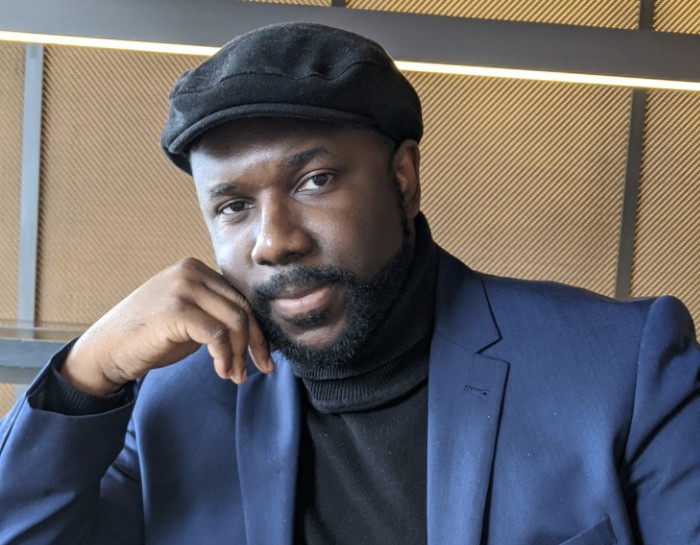
Clinical UX Strategist & Digital Healthcare Consultant
Gyles has been working in Clinical UX and Digital Health since 2014, and has been in teaching and training for over 10 years. He has taught thousands of people around the world on the topic of healthcare UX for universities, UX courses, conferences.
His professional work as a Clinical UX Strategist has also taken him across the globe, working for digital health starts-ups, the NHS and large Pharmaceutical companies.
After graduating from Bart’s & London School of Medicine and Dentistry in 2011, Gyles worked as a medical doctor for three years. He then completed an MSc in Human Computer Interaction with Ergonomics at University College London in 2018 to bolster his skills and knowledge in UX and design, with a special interest in Healthcare.
Fortune Khubile
Medical Practitioner - Functional Assessor
I did a UX course with one of the mainstream institutions. In comparison I found Dr Morrison’s teaching more detailed, thorough and practical. His course material is more up to date, relatable and relevant. This is influenced by the undeniable passion he has for clinical UX design.
I now have a solid foundational understanding of clinical UX and I have been able to start working on small projects.
Sean Roberts
Study coordinator, NHS
Gyles has an exceptional ability to articulate the crucial role of UX design in the context of healthcare.
Fiona Brownlie
UX Designer and VR Specialist
“Gyles is an excellent instructor. His fun and calming personality makes you feel completely comfortable with asking questions and he was able to structure classes that would benefit us. He was always encouraging and positive and I really enjoyed his classes.”
Ready to become a Clinical UX Specialist?
Students who already UX professionals or have completed a recognised UX course can now enroll for an April 2023 start.
First, decide which units you would like to take.
Below are details of course fees.
We also offer scholarships for candidates who need financial assistance, which you can find more information on here.
Students have three course options to choose from:
Simply complete the form below to and we’ll get back to you as soon as possible.
*You will be subscribed to our mailing list so we can update you. But you can unsubscribe at any time. We take data privacy very seriously, find out more by reading our Privacy Policy.
Yes. In fact, it is heavily encouraged. UX is not just theory and making prototypes. It requires time to develop knowledge and skills in Clinical UX, and constructive feedback is essential. The course is only taught part time to ensure students get the time they need really learn and and improve.
Unfortunately English is the only language we currently teach in, but this is something we are looking to change in the future.
No. The course is part time and designed to fit alongside the schedule of full time workers and students. Self study learning can be done any time. And the live classrooms sessions either happen outside working hours during the week or on the weekend.
Yes, we do offer scholarships for candidates who need financial assistance. Simply complete the contact form and mention that you are interested in a scholarship funded place. Most scholarships dramatically reduce the course fees, or may cover the whole course fees for you.
Yes! Simply send an email to info@clinicalux.org and we can arrange an invoice and any other paperwork you may require for your employers finance department.
Not at all. Most of our students have never worked in healthcare at all. All the medical knowledge they require to work in Clinical UX is taught on the course.
This is a course in an emerging field of UX and the road to accreditation is a long one, but one that we are taking. However the course:
Also, note that many UX institutions do not offer an accredited course, including Nielson Norman Group, General Assembly and Career Foundry.
Yes, issued by the Clinical UX Association. Please note that this course is not yet accredited.
We can’t, and no training course can unless they provide jobs themselves.
However, if you apply what is taught to you effectively, it is very possible you can get a job during the 12 months of doing the full course.
Yes!
There is a lot of money invested in digital health alone; $111Billion USD globally, set to triple in the next 5 years. The return on this investment comes by making profitable healthcare products and services. This can be achieved by having Healthcare and Clinical UX professionals working on projects.
Of course!
This course was specifically designed for clinicians to either change their career completely, or work part time as a UX professional whilst still working clinically. The course being part time helps with that too.
Yes.
There is debate that UX, Service Design and Customer Experience are different disciplines. However, what is true is that the core skills, knowledge and competencies are shared across all three.
Not at all.
There are many, competent UX professionals who have very little artistic skill, and this is fine. Being good at art is not a requirement unless you want to be a user interface (UI) designer.
You do need to know how to at least express ideas visually, but this is very simple sketching of boxes with labels, or flow diagrams.
No, not at all.
There are many, competent UX professionals who never have to write a line of code. It is not a required for all UX jobs, especially if the project does not involve a digital product.
You do need some aspects of development so you know how it can impact the design and development of digital products. For example, the pros and cons of web based applications versus native mobile applications.
There was a problem reporting this post.
Please confirm you want to block this member.
You will no longer be able to:
Please note: This action will also remove this member from your connections and send a report to the site admin. Please allow a few minutes for this process to complete.


